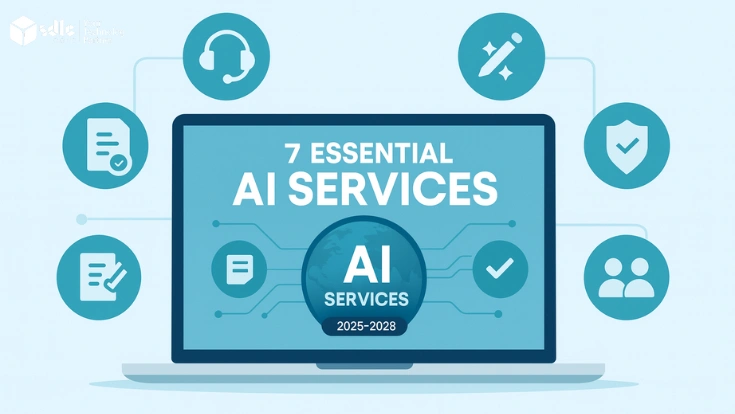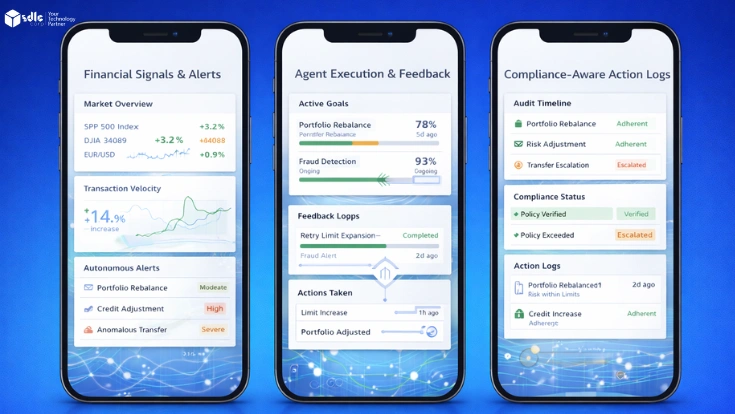The gaming industry is undergoing a revolutionary transformation, and at the heart of this evolution lies Artificial Intelligence (AI).
Once a novelty, AI in gaming has now become a critical driver of innovation enhancing gameplay, transforming development workflows, and reshaping user engagement. As we look ahead, the future of gaming with AI promises experiences that are not just immersive but intelligently adaptive, personalized, and expansive.
From smarter non-player characters (NPCs) to AI powered content creation, the integration of AI technologies is redefining what’s possible in interactive entertainment. Let’s explore how AI is shaping the present and future of gaming.
The Evolution of AI in the Gaming Industry
AI has had a long standing presence in gaming, beginning with simple rule-based systems like the ghost movements in Pac Man or chess engines like Deep Blue. These early examples focused on reactive behavior and predefined logic trees.

- DeepMind’s AlphaStar outperforming pro players in StarCraft II
- Procedural world generation in games like Minecraft and No Man’s Sky
- AI voice acting and scriptwriting assistance
Role of AI in Modern Game Development
Game development today involves complex systems spanning gameplay logic, graphics, analytics, and player interaction. AI supports these systems by enabling adaptive mechanics, automated testing, and data-driven design decisions. Many studios rely on AI development services to integrate AI components that work alongside existing game engines and pipelines.
Key Areas Where AI is Transforming the Gaming Industry
AI is revolutionizing the gaming industry by enhancing personalization, streamlining development, and optimizing competitive play. From smart NPCs to AI powered analytics, it’s reshaping how games are designed, played, and monetized.
Enhanced Player Experience and Personalization

- Dynamic difficulty adjustment (DDA) ensures every player, whether novice or expert, stays challenged but not frustrated.
- Games like Left 4 Dead use an “AI Director” to modify enemy spawns and events in real time.
AI-Powered Game Design and Development
Modern development teams now rely on AI game development tools to streamline production and improve creativity.

- Procedural generation AI builds expansive worlds and levels algorithmically, reducing manual workload.
- AI-powered QA tools detect bugs, balance issues, and gameplay inconsistencies before human testers do.
- Narrative generation tools help script unique dialogues or branching storylines.
- AI Dungeon generates infinite storytelling experiences.
- Ubisoft’s Ghostwriter assists narrative designers with character dialogues.
Revolutionizing Esports and Competitive Gaming

- AI player analytics gaming tools dissect performance data to aid coaching and training.
- Anti-cheat systems powered by AI can detect anomalies in behavior and prevent fraud in real time.
- AI-enhanced broadcast tools offer real-time commentary insights and game state predictions, enriching the spectator experience.
Marketing and Monetization Powered by AI

Marketing has entered a new era with AI gaming marketing solutions that target users with uncanny accuracy.
- AI analyzes user behavior to segment audiences and deliver tailored promotions.
- Real-time personalization of in-game store items based on play style increases revenue.
- AI monetization strategies include optimizing in-app purchases and identifying high-LTV (lifetime value) users.
AI enables a dynamic approach where offers are no longer static but evolve based on real-time decisions and emotional cues.
Benefits of AI Adoption in the Gaming Industry

- Increased player engagement and retention through personalized content
- Reduced development cycles and costs due to automated testing, procedural generation, and AI design tools
- Innovation in game mechanics through emergent behaviors and intelligent NPC interactions
- Accessibility improvements, allowing players with disabilities to enjoy games via AI-driven assistance
Challenges and Ethical Considerations
- Data privacy concerns around collecting and analyzing player behavior
- Bias in AI algorithms affecting fair gameplay, especially in matchmaking or adaptive difficulty
- Job displacement as AI handles tasks traditionally performed by developers, designers, and QA testers
Governance, Fair Play, and Strategic Planning
AI in gaming also raises considerations around fairness, moderation, and transparency. Systems that monitor behavior or influence outcomes require clear boundaries and oversight. An AI consulting company may assist studios in evaluating risks, defining governance frameworks, and ensuring AI-driven features align with player trust and regulatory expectations.
The Future Outlook: What’s Next for AI and Gaming?

- Reinforcement learning could power autonomous NPCs capable of learning from player interaction in real-time
- Neural networks may simulate human-like dialogue or character arcs with emotional depth
- AI-powered voice synthesis will replace static voice acting with dynamic, emotion-aware responses
- Fully AI-generated games from assets to narrative could democratize game creation
Scaling AI Across Large Gaming Platforms
As games expand into live services with large player bases, AI systems must scale across servers, regions, and platforms. Enterprise-level coordination helps manage consistency and performance. Practices followed by an enterprise AI development company can inform strategies for deploying AI across multiplayer and live-ops environments.
Conclusion
AI is no longer an add-on in game development it’s becoming its backbone. From smarter NPCs to adaptive storytelling, AI has already begun to reshape the landscape of digital gaming. The future of gaming with AI will be marked by creativity, intelligence, and hyper personalization.
Have a game idea driven by AI innovation? Contact Us or Hire AI Developers to turn your vision into reality
FAQs
What Is AI In Gaming?
How Does AI Enhance Player Experience In Games?
AI enables personalized gameplay, adaptive difficulty, and dynamic storytelling by analyzing player behavior and tailoring experiences in real time keeping players more engaged and satisfied.
What Are The Benefits Of Using AI In Game Development?
How Is AI Used In Esports And Competitive Gaming?
Can AI Help With Game Monetization?
Are There Any Risks Or Ethical Issues with AI In Gaming?
What Is The Future Of AI In Gaming?
Will AI Replace Game Developers?
No. AI assists with repetitive or data-driven tasks, but human creativity remains essential for storytelling, game design, and emotional depth. AI is a tool not a replacement.




